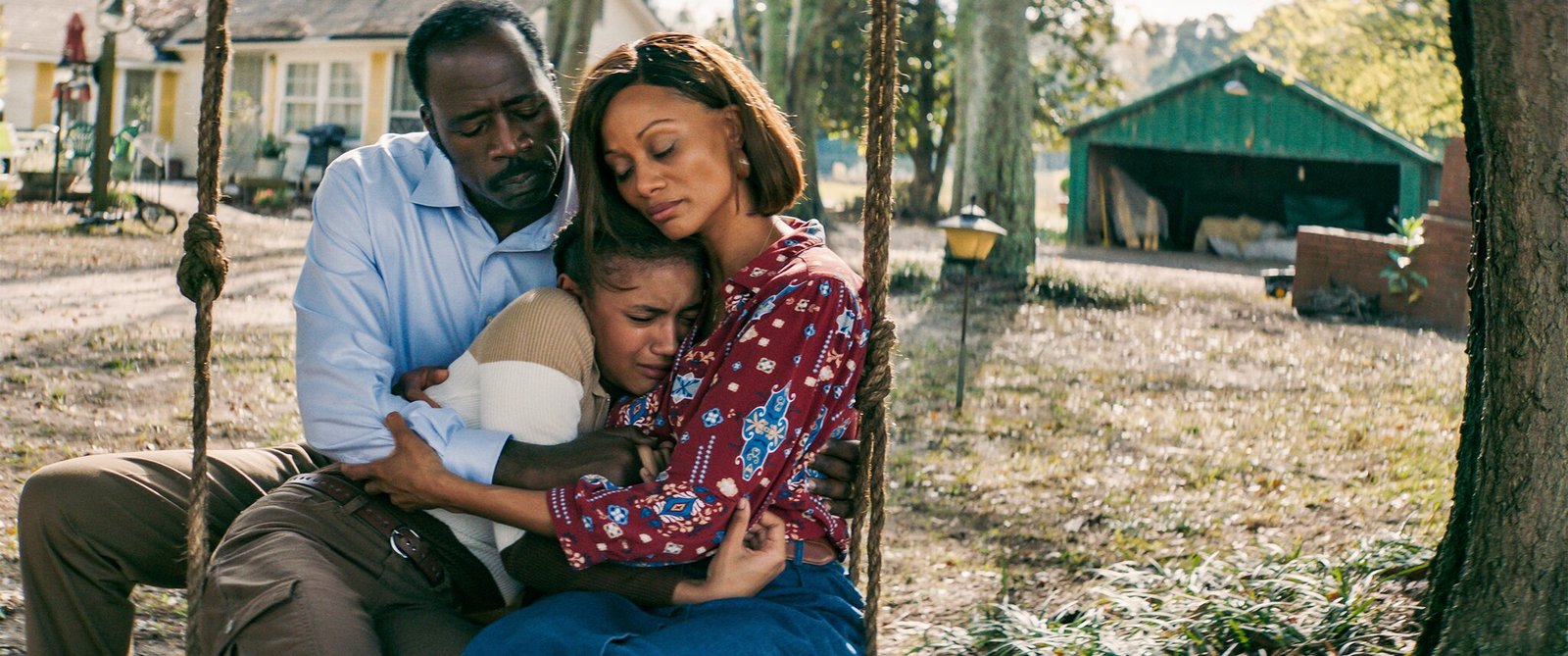Published
2 years agoon

Now more than ever, there is the need for us all to collectively fight for the children. That is exactly what “Sound of Hope” is about. Written by Joshua and Rebekah Weigel, the film tells a true-life story set in the small town of Possum Trot, East Texas.
It highlights the extraordinary efforts of 22 families from a rural black church who adopted and took care of 77 of the most difficult-to-place kids in the foster system.
At the centre of this inspiring story are Donna and her husband, Reverend Martin, leaders of a small black church in Possum Trot. Donna, inspired by what she believes is the voice of God following the passing of her beloved mother who was a mother figure to the entire community, convinces her husband that they need to adopt and raise some children. The Martins, already parents to two children, one with special needs, decide to take on the challenge of adopting two young children saved from an abusive home. They later adopt 13-year-old Terri, who also comes from a troubled background.
Terri becomes the biggest challenge for the couple, testing not just their resolve as parents but also their faith as Christians. As Terri‘s behaviour puts them through numerous trials, Donna and Reverend Martin start to doubt their ability to fulfil the mission they believe God has set for them. What’s most inspiring about this story is how the Martins, through their actions, convince 21 other families from their church to also adopt several other children stuck in the foster system.
Joshua Weigel directs this drama with a deft hand, creating a wholesome film that steers clear of the common tropes of many ‘Christian‘ or faith-themed films. The story he tells with “Sound of Hope” can be relatable to anyone, regardless of faith or belief. Fortunately, he has some very interesting characters to help him tell this story. All the central characters in the story are based on real people. Even though some events might be dramatized for the sake of the film, they are all characters that feel very relatable.
Donna Martin is played by the talented Nika King. King brings forth all the right emotions you would expect from a strong-willed and empathetic woman. Donna is also deeply grounded in her faith as a Christian, which we see particularly in how she listens and trusts that she has been directed by God to take in the kids, even before her husband, the ordained leader of the church, agrees to it. It is also pleasing to watch the genuine and honest show of love and sincerity between the Martins, despite the considerable age gap between Donna and her husband.
Social worker Susan Ramsey (played by Elizabeth Mithcell) also is a pivotal part of the story being told. She does all she can working with the Martins and the other families to be able to find suitable homes for these kids that need them.
Demetrius Gross plays Reverend W.C. Martin with a perfect balance of strength and vulnerability. He delivers a compelling performance as a staunch believer, preacher, and leader of the church. Reverend Martin exemplifies what fatherhood is truly about. Which is being a provider and protector for the kids. We see him go above and beyond, even putting himself in some embarrassing situations, just to ensure that he and the other families can financially support the children they have adopted.
The young actor Dianna Babnicova provides a very convincing and emotionally nuanced performance as Terri. She brings so much life to the character that, while watching her, you can almost not only understand but also feel the frustration and challenges she puts the Martins through. In many ways, she becomes the driving force of the film’s narrative at certain points. All the young actors in this film deserve plaudits for their performances as well.
The production elements deployed also add to the overall quality of the film. With the story set in the late 90s to early 2000s, the film has the right look and feel to immerse you in that time. From the costuming to props and even the art direction and set design for the homes, you get the exact look and feel appropriate for that era. The film also has the right cinematic quality to make it enjoyable in a theatre and not just from your couch.
One drawback is the film’s two-hour runtime. Although it passes quickly enough due to the compelling narrative, it still feels like it could have been shorter. Additionally, some scenes in the film are quite intense, particularly those involving violence and abuse of kids. However, these scenes might have been necessary to convey the seriousness of the issues.
At the end of the film, we see footage of the actual families and the adopted kids, along with their kids, all together with the Martins. These scenes are certainly tear-jerkers, knowing that the mission to save these abandoned kids was successful and that they have all grown into thriving adults.
“Sound of Hope” does more than just inspire you to consider adoption; it cautions and prepares you for the possible challenges. It shows that adopting kids is not just an act of kindness but a sacrifice that could change your life and that of the children you take in. The film stays honest to these themes right through to the end. While we can’t be foster parents, we all have a part to play in ensuring that children all over the world get to live good lives with their safety and health paramount.
You might watch this film for its entertainment value, but it is also a call to action. Truly, it is time to fight for the children. I would score this film 7.5/10.
Second on my list of addictions is Movies.. the only thing I could possibly love more is my Dearest Waakye lol. Nothing else does a better job of reminding me that ANYTHING is possible with the right amount of effort. I have great eye for details and flaws in scripts. Shallow scripts bore me. I am an avid reader. Your everyday Mr Nice guy. Always the last to speak in a room full of smart people. Half Human, half Martian but full MOVIE FREAK.



Movie Review: ‘The Last Rodeo’ – A Gritty Tale of Family, Faith, and Fighting Spirit


Movie Review: ‘Brave the Dark’ – The Power of Resilience and Compassion.


Movie Review: ‘Homestead’ – A Faith Filled Exploration of Survival Amid Societal Collapse


Movie Review: “Cabrini” – A Captivating Journey into Resilience, Compassion, and Social Justice.













